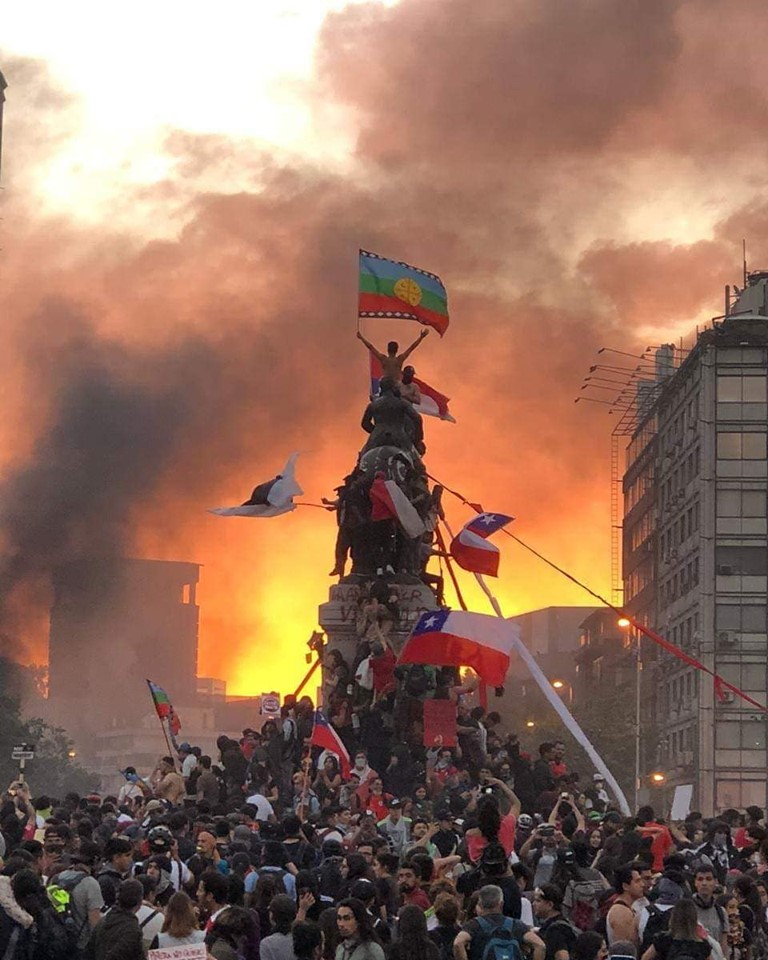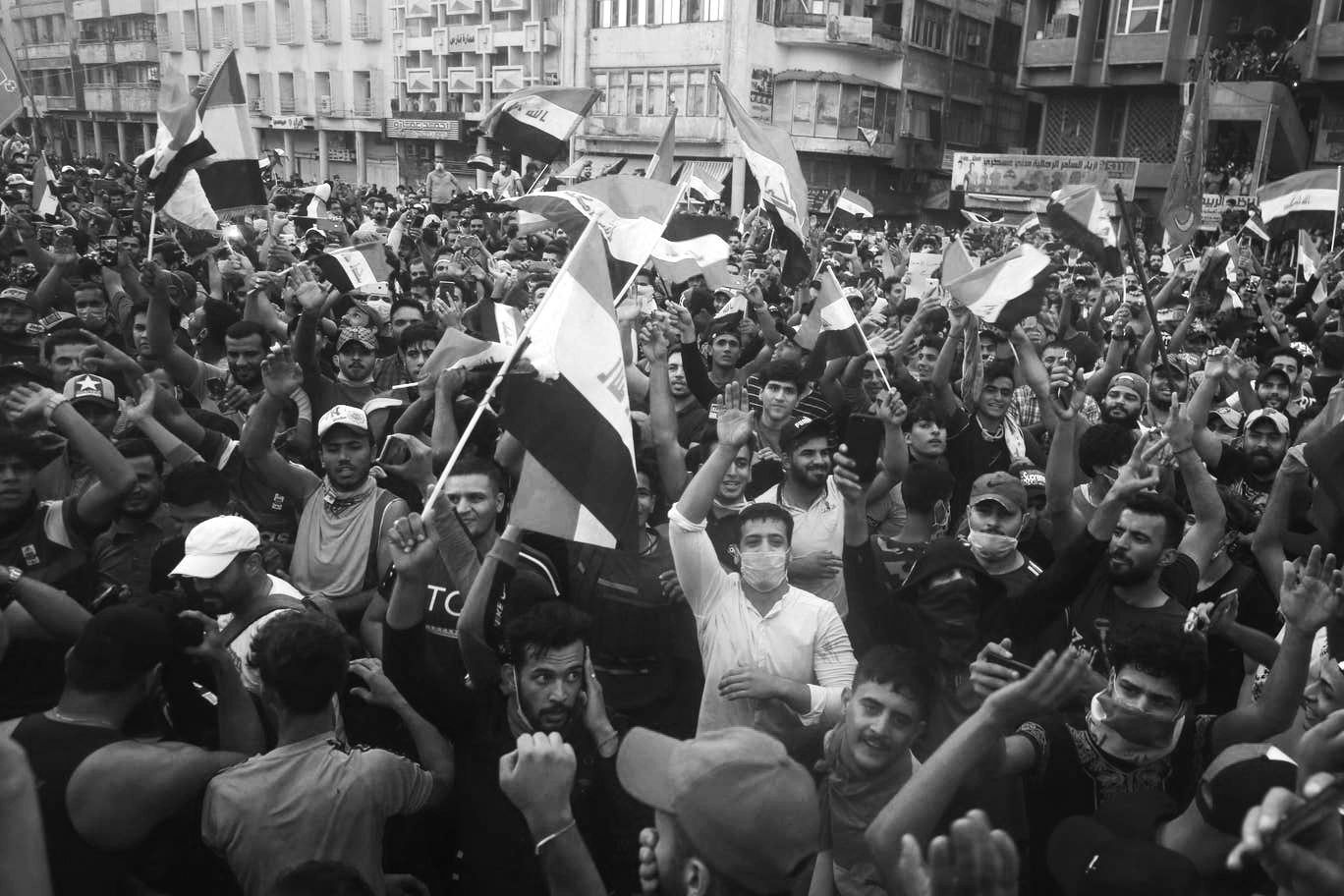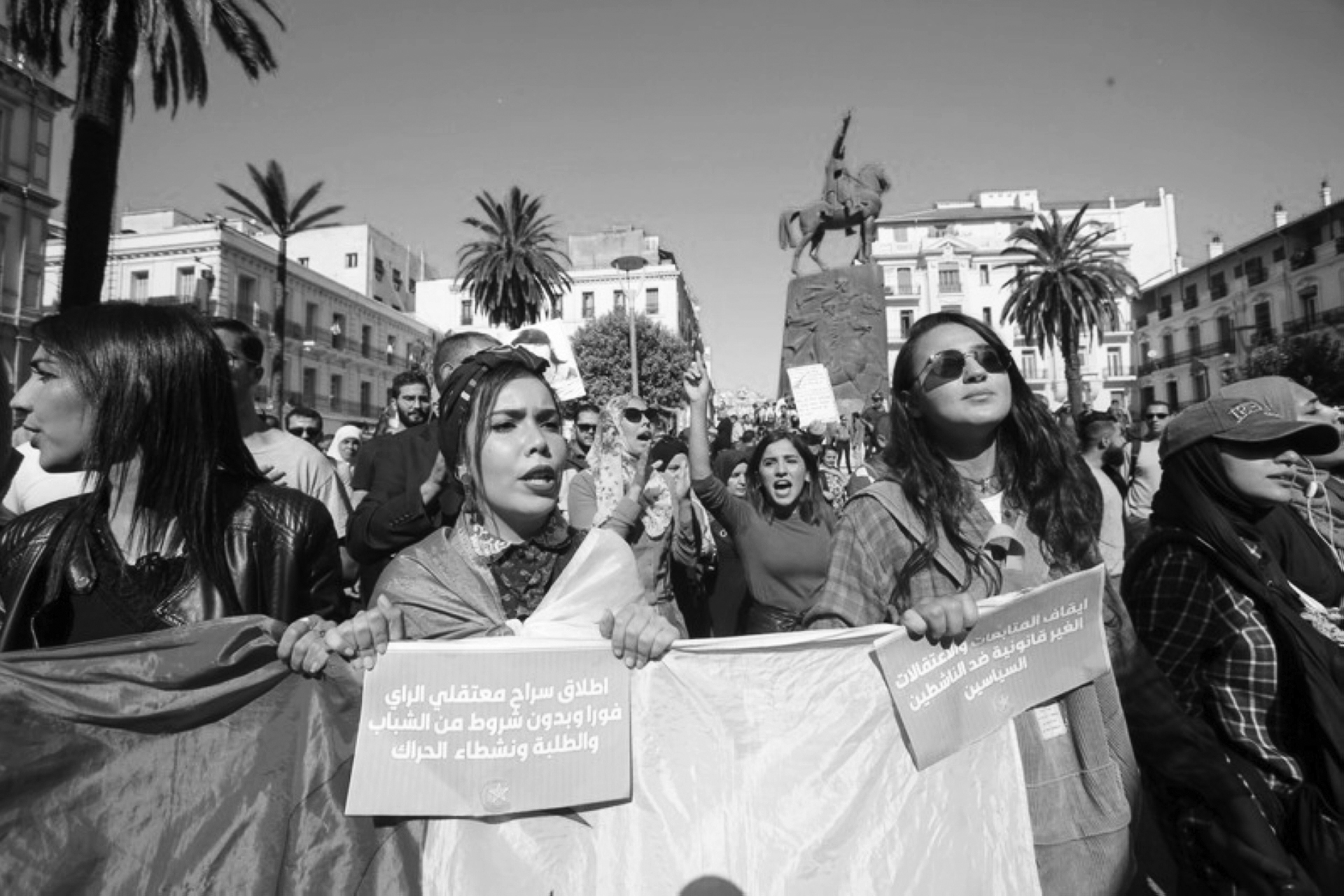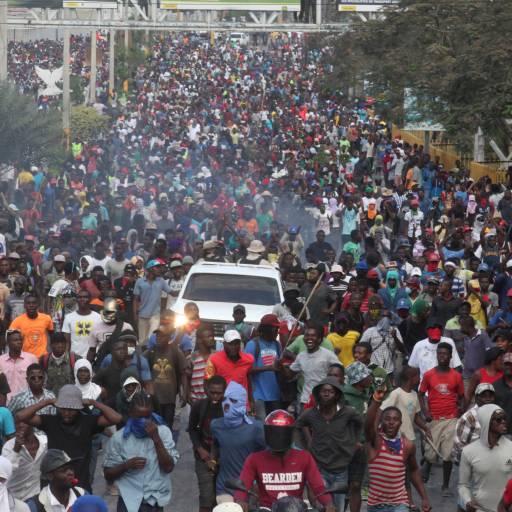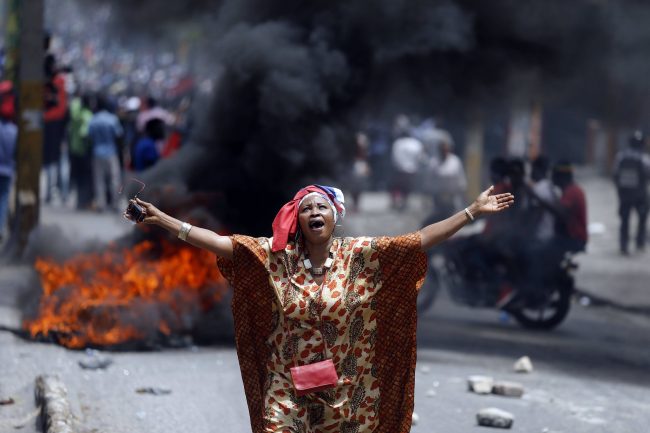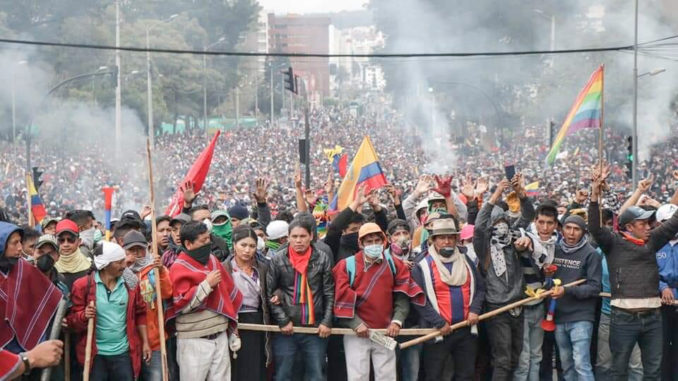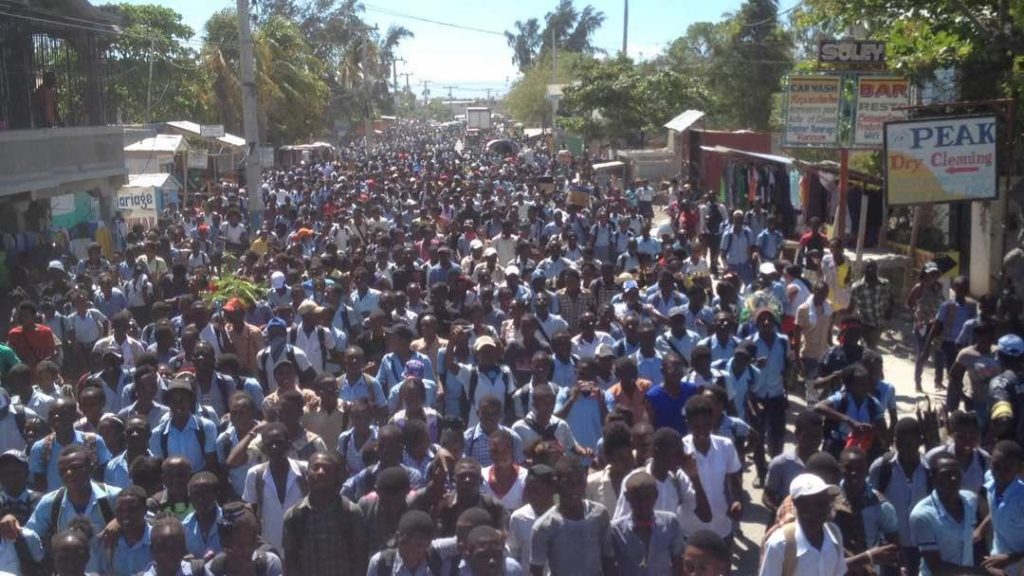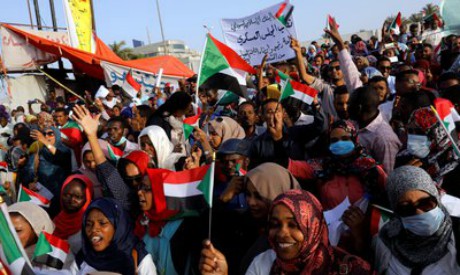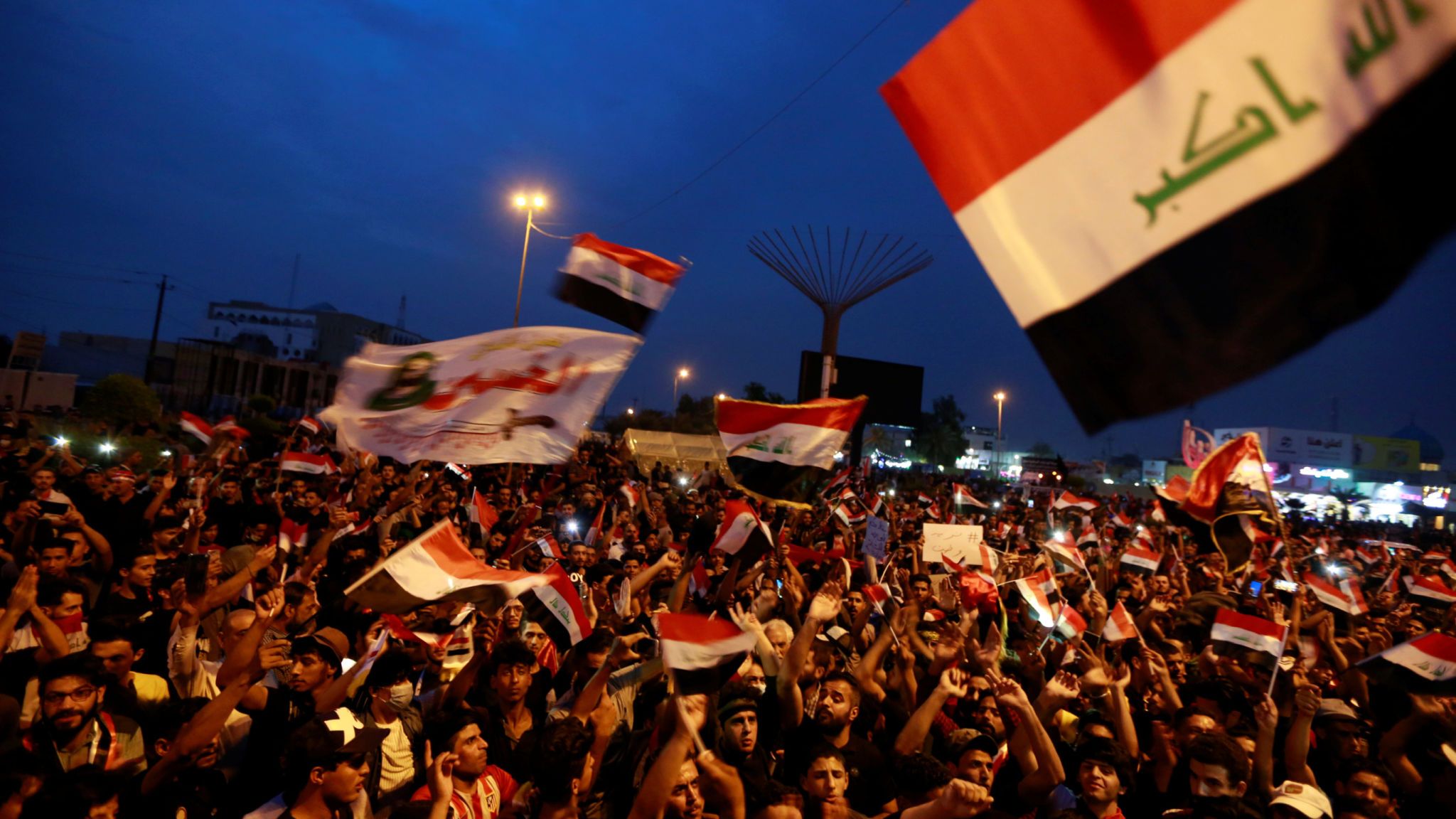
By Jennifer Lin
Protesters in Iraq are demanding the resignation of their government that is a product of U.S. imperialist occupation. Iraqis had built for themselves a highly developed country before the U.S. government destroyed it for access to its oil. After the Iraq monarchy was overthrown in 1958, British and American oil companies were kicked out and the oil was nationalized. By 1990, Iraq had the highest standard of living in the Middle East. The literacy rate was around 80% and people had access to free healthcare and education. More women were in the Iraqi parliament than in the U.S. Congress. Iraq’s children’s hospital accepted patients from all over the Middle East for free.
Determined to free themselves of U.S. imports, Iraq was moving to produce its own food as it did before British occupation. Similarly, they were moving to cut dependence on other industrial goods. Not buying U.S. commodities, using oil for their own national development: these were the real “crimes” that led to the U.S. wars.
Documents prove that the U.S. CIA considered Saddam a reliable ally when he was suppressing left and nationalist elements. But as soon as he implemented policies aimed at uplifting the working class and making Iraq economically self-sufficient, he became a threat to the economic and political dominance of the U.S. corporations.
To block the self-determination of the Iraqi people, the U.S. bombed the country in 1991. More than 90% of the country’s electrical capacity and most of its telecommunications, irrigation, water purification, and hydroelectric systems were destroyed. Bombs were aimed at farms, schools, hospitals, public transit stations, mosques, and historic sites. Around 200,000 people were killed, and the depleted-uranium missiles used by the U.S. led to tens of thousands more cancer-related deaths in the following years. Sanctions killed over half a million children.
In 2000, Saddam stopped accepting U.S. dollars as payment for oil. This was unprofitable for the U.S. capitalist class, so the U.S. invaded the country again. Bush invented propaganda accusing Iraq of developing weapons of mass destruction, but this was just a lie used to justify the invasion so the U.S. could control Iraq’s oil wealth. After the invasion, most of Iraq’s economy was either destroyed, shut down, or privatized. Poverty and unemployment skyrocketed.
The U.S. occupation was a bonanza for war profiteers and an assault on the working class. Both Iraqi and U.S. workers bore the costs of this violent imperialist war, as U.S. taxpayer dollars were stolen to fund the destruction of Iraqi lives and livelihoods.
The U.S. trained and armed Special Police Commandos to quell resistance. These death squads terrorized civilians with open gunfire, torture, arrests, and mass murders. Continued U.S. involvement in Iraq fomented sectarian violence and pushed people to join the Islamic State, locking Iraq in a state of perpetual warfare. In 2014, Obama sent troops to Iraq to “fight terrorism,” but this was just another lie used to maintain the U.S. military stronghold in the country.
On October 1, 2019 Iraqi people from all walks of life took to the streets to demand an end to the succession of repressive governments that have ruled the country since the U.S. invasion. Beholden to the ruling elites of Iraq and the U.S., these governments have stripped the Iraqi people of jobs and access to public services.
Protesters have rejected President Salih’s promises for reform, demanding that the entire government be removed from power. Despite violent repression by security forces, the Iraqi people are refusing to back down.
U.S. Ignores Poverty, Tries to Use Protests to Attack Iran
The U.S. government which only represents the oil companies and big business is not interested in the conditions of workers in Iraq or anywhere else. Always seeking to use a situation for their own purposes, however, the U.S. working through the most reactionary clerics have tried to cast the protests as anti-Iran as this fits the agenda of the U.S. There is no credible evidence that any but a small grouping are buying into this.
Workers have nothing to gain from U.S. imperialism, which imposes capitalist poverty on other countries to make the world safe for U.S. corporate control. U.S. imperialism crushes democracy wherever it goes, as the history and current situation of Iraq show. Our struggle to live a healthy life with access to jobs, food, housing, and healthcare is connected to the ongoing struggle of the Iraqi people. Our hard-earned money is stolen and used to destroy the livelihoods of Iraqi people rather than to fund public programs that would benefit us. We must stand in solidarity with any country resisting U.S. imperialism and call for an end to U.S. intervention in the country.

